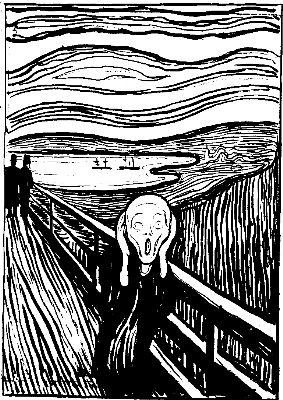 thousands, perhaps even millions, to prevent their usurping his power. Yet, Lincoln is considered perhaps our greatest political leader, Kennedy is credited with taking an official government stand against the racism prevalent when he took office, Martin Luther King furthered the Civil Rights movement and championed non-violent civil disobedience to effect the changes he sought, Churchill, virtually alone at first, stood up to Hitler and helped save western democracies, while Stalin, for all his huge faults, led his country to a crushing victory against Nazi Germany, though the obstacles to this outcome at one point looked insurmountable.
thousands, perhaps even millions, to prevent their usurping his power. Yet, Lincoln is considered perhaps our greatest political leader, Kennedy is credited with taking an official government stand against the racism prevalent when he took office, Martin Luther King furthered the Civil Rights movement and championed non-violent civil disobedience to effect the changes he sought, Churchill, virtually alone at first, stood up to Hitler and helped save western democracies, while Stalin, for all his huge faults, led his country to a crushing victory against Nazi Germany, though the obstacles to this outcome at one point looked insurmountable.
Besides such obvious examples, there are evidently numerous leaders who could not have achieved what they did without obsessive drive or ambition to the point of hubris. Alcohol and drug abuse also seem to have been common. Ulysses S. Grant, who brilliantly led the Union forces to victory against the Confederacy in our Civil War, was well known to abuse alcohol, yet went on to be a U.S. president and to write an excellent autobiography. Considering that in much of human civilization alcoholic beverages were regarded as both effective medical disinfectants (before penicillin) and safer than water to drink (before chlorination or regular boiling) and that cocaine, opium, etc. were previously in common use as pain killers, it is probable many others of our esteemed leadership had serious addiction difficulties. Many of our most admired creative geniuses also suffered mental illness or were hooked on drugs or alcohol: Poe, Kierkegaard, Faulkner, Dostoevsky, Freud, Van Gogh, Hemmingway, Tennessee Williams, Burroughs, Melville, Rimbaud, Fitzgerald, etc.
Yet, in spite of their infirmities, these and many others have left legacies of great accomplishment. Evolution teaches that tendencies which do not support a species' persistence will be eliminated. The competition is too severe, the hurdles too high, the natural stressors too frequent and intense. Sooner or later, those with traits that diminish a species' chances will be killed off. How is it, then, that so many of our leaders and our most noted innovators in the arts, literature, medicine, etc. have been effective and have passed along their genes though suffering from severe disabilities?
Might it be that some degree of mental illness, instability, or added vulnerability is actually a good thing, perhaps leading to better adaptation in times of crisis? I do not know, but think this has merit as a working hypothesis. If found to be valid, such an insight might also lead us to greater understanding of and compassion, not for the likes of Stalin, certainly, but for the many (the majority?) among us who in various less sinister ways are not quite "normal."
Primary Source: Nassir Ghaemi, M.D., A First-Rate Madness: Uncovering Links Between Leadership and Mental Illness (New York: The Penguin Press, 2011).